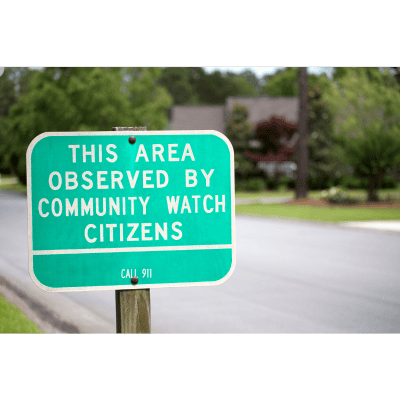Unmasking The True Price: What Does A Home Security System Really Cost You? In an era where safety and security are paramount, home security systems have become increasingly popular. But have you ever wondered about the true cost of these systems? While prices may vary, it goes beyond the initial investment. From installation fees to monthly monitoring charges, this article unveils the hidden expenses that often come along with home security systems, helping you make an informed decision about protecting your home and loved ones. Discover the true price and what it entails.
Initial Setup Costs
Equipment Cost
When it comes to setting up a home security system, one of the first expenses you’ll encounter is the cost of equipment. This includes the various components that make up the system, such as cameras, sensors, control panels, and alarms. The price of these items can vary greatly depending on the level of sophistication and brand you choose. While some basic systems may only require a few hundred dollars worth of equipment, more advanced systems with multiple cameras and smart home integration can cost upwards of several thousand dollars.
Installation Cost
In addition to the equipment cost, you also need to consider the expense of installation. Some home security systems offer DIY options that allow you to set up the system yourself, potentially saving on installation costs. However, if you’re not particularly tech-savvy or if you prefer professional installation for peace of mind, you may need to pay for a technician to come and install the system for you. This can add anywhere from a hundred to several hundred dollars to the overall cost, depending on the complexity of the installation.
DIY Options
If you’re looking to save money, some home security systems offer DIY options that allow you to skip professional installation altogether. These systems typically come with detailed instructions and user-friendly interfaces that make setup a breeze. By choosing to install the system yourself, you can avoid the additional expense of hiring a professional. However, it’s important to note that DIY options may not be suitable for everyone, especially those who are not comfortable with technology or prefer the peace of mind that comes with having a professional install the system.
Monthly Monitoring Fees
Basic Monitoring
Along with the upfront setup costs, most home security systems require a monthly monitoring fee. This fee is for the remote monitoring service provided by the security company, which ensures that your home is being watched over 24/7. Basic monitoring typically includes features such as alarm activation and dispatching emergency services if needed. The cost of basic monitoring can range from around $15 to $50 per month, depending on the security company and the level of service provided.
Advanced Monitoring
For those who want additional peace of mind, many security companies offer advanced monitoring options. These may include features such as video surveillance, remote access to your security system, and customized alerts for specific events. While these added features can enhance your home security system’s functionality, they often come at an additional cost. Advanced monitoring packages can range from $50 to $100 or more per month, depending on the level of features and services included.
Additional Features
In addition to basic and advanced monitoring options, some security companies offer additional features that you can choose to add on to your system. These may include things like home automation integration, allowing you to control lights, thermostats, and other smart devices remotely. While these add-on features can undoubtedly enhance the convenience and functionality of your home security system, it’s essential to consider the extra cost they may incur. Depending on the complexity and extent of the additional features, the cost can vary significantly.

Contract Length and Cancellation Fees
Long-Term Contracts
Many home security companies require customers to sign long-term contracts, typically ranging from one to three years. These contracts often come with the benefit of lower upfront costs or discounted monitoring fees. However, committing to a long-term contract means you may be locked into the service for an extended period, which can present challenges if you decide to switch providers or if your circumstances change. It’s essential to carefully consider the terms and conditions of any contract before signing to understand the potential long-term commitment you’re making.
Rolling Contracts
In contrast to long-term contracts, some security companies offer rolling contracts that allow for greater flexibility. These contracts typically operate on a month-to-month basis, allowing you to cancel or change your service without incurring significant penalties. While rolling contracts may come with higher upfront costs or monthly fees compared to long-term contracts, they offer the advantage of not being tied down to a particular provider if you find a better option or if your needs change over time.
Early Termination Fees
If you find yourself needing to terminate a long-term contract before the agreed-upon period is up, you may be subject to early termination fees. These fees are designed to compensate the security company for the loss of revenue they would have received from your continued service. The cost of early termination fees can vary depending on the length of the remaining contract and the specific terms outlined in the agreement. It’s essential to carefully review the fine print and consider the potential financial impact before deciding to terminate a contract prematurely.
Maintenance and Upkeep Expenses
Battery Replacement
To ensure that your home security system functions properly, regular maintenance and upkeep are required. One aspect of maintenance is replacing batteries in devices such as sensors, cameras, and control panels. The frequency at which batteries need to be replaced will vary depending on the specific devices used and their power consumption. While batteries are not typically expensive, it’s important to factor in the cost of replacements over time when considering the overall cost of your home security system.
System Updates
In addition to battery replacements, system updates are another aspect of maintaining a home security system. Technology is continually evolving, and security system manufacturers often release updates to enhance performance, address security vulnerabilities, or add new features. These updates usually require either manual action by the homeowner or assistance from the security company’s support team. While updates are generally included as part of the monitoring fee, it’s important to be aware that more significant updates may require additional costs or fees.
Device Malfunctions
While home security systems are designed to be reliable and robust, there is always the possibility of device malfunctions. Whether it’s a faulty sensor or a camera that stops working, these issues need to be resolved promptly to maintain the effectiveness of the system. Depending on the warranty and support offered by the security company, the cost of repairing or replacing malfunctioning devices can vary. It’s important to research the warranty and support options available before choosing a home security system to ensure you’re prepared for any potential issues that may arise.

Insurance Premiums
Homeowner’s Insurance Savings
One of the potential benefits of installing a home security system is the potential savings on homeowner’s insurance premiums. Many insurance companies offer discounts to homeowners who have a monitored security system in place. These discounts can vary depending on the insurance provider and the level of security measures implemented. However, it’s essential to check with your insurance company to understand the specific requirements and the potential cost savings before relying on these discounts to offset the expense of your home security system.
Additional Discounts
Aside from potential savings on insurance premiums, some security companies may also offer additional discounts or incentives. These could include things like referral programs, loyalty rewards, or bundled packages that combine home security with other services such as internet or television. While these additional discounts might not necessarily be counted as direct costs, they can contribute to reducing the overall cost of your home security system in the long run.
Insurance Requirements
It’s important to note that some insurance companies may have specific requirements for your home security system to qualify for any potential discounts. These requirements may include things like the type of system installed, the monitoring company used, or the specific features that must be included. Before purchasing a home security system, it’s a good idea to check with your insurance company to ensure that your chosen system meets their requirements to maximize any potential insurance savings.
False Alarm Fines
Triggers for False Alarms
While home security systems are designed to protect your home, they can also be triggered by false alarms. These false alarms can be caused by various factors, such as user error, pet movement, or even technical glitches. While technology has improved over the years to minimize false alarms, they can still occur on occasion. It’s important to be aware of what factors can trigger false alarms and take necessary precautions to reduce their likelihood, such as proper training on system usage and ensuring that pets do not wander into areas covered by motion sensors.
Monetary Penalties
In some jurisdictions, false alarm fines or penalties may be imposed if emergency services are dispatched to your home due to a false alarm. These fines are designed to discourage unnecessary calls and ensure that emergency resources are allocated efficiently. The specific amount of fines can vary depending on the jurisdiction and may increase with each subsequent false alarm. It’s crucial to familiarize yourself with the rules and regulations in your area regarding false alarms to avoid any potential financial penalties.
Impact on Reputation
In addition to potential monetary penalties, false alarms can also have an impact on your reputation as a homeowner. Frequent false alarms may lead to frustration from neighbors or emergency services, potentially causing them to become less responsive in the event of a genuine emergency. It’s important to take measures to reduce false alarms by maintaining and testing your system regularly, as well as ensuring that all users are familiar with proper system operation. This can help preserve your reputation and ensure that emergency services take your alarms seriously when they are genuine.
Add-On Services and Equipment
Video Surveillance
Video surveillance is a popular add-on option for many home security systems. It provides an extra layer of security by allowing you to monitor your property remotely and record any activity that occurs. Video surveillance can be especially useful in providing evidence in the event of a break-in or other incidents. The cost of video surveillance will depend on factors such as the number of cameras required, the quality of video recording, and whether or not you opt for cloud storage of your footage.
Smart Home Integration
Another popular add-on option is smart home integration, which allows you to control various aspects of your home, such as lights, thermostats, and door locks, remotely. This integration can enhance the convenience and energy efficiency of your home, as well as provide additional security benefits. Smart home integration can come at an additional cost, depending on the level of integration and the compatibility of your existing devices with the security system.
Fire and Carbon Monoxide Detection
In addition to protecting your home from burglary and intrusion, many home security systems offer add-on options for fire and carbon monoxide detection. These additional sensors can provide early warning of potential hazards, allowing you to take prompt action to protect your home and loved ones. The cost of integrating fire and carbon monoxide detection into your home security system will depend on factors such as the number of sensors required, the level of coverage, and any additional monitoring fees associated with these features.
Alternative Security Measures
Neighborhood Watch
While a home security system can provide peace of mind, it’s important to consider alternative security measures that can complement your system. One such measure is participating in a neighborhood watch program. Neighborhood watches involve residents working together to keep an eye out for suspicious activity and reporting it to the local authorities. These programs can be highly effective in deterring crime and creating a sense of community security. While neighborhood watch programs don’t come with direct costs, they do require active involvement and cooperation from residents.
Self-Monitoring Systems
Another alternative to traditional home security systems is self-monitoring systems. These systems rely on smart home technology to send alerts directly to your smartphone or other devices in the event of a security breach. While self-monitoring systems may not provide the same level of professional monitoring as traditional systems, they can be a cost-effective option for those who prefer to take a more hands-on approach to their home’s security. The cost of self-monitoring systems will depend on the specific devices and technology used.
Cellular Backup
To ensure that your home security system remains operational even during power outages or internet disruptions, cellular backup can be an important add-on. Cellular backup utilizes cellular networks to maintain connectivity between your security system and the monitoring center. While this feature adds an additional layer of reliability, it does come with an extra cost. The price of cellular backup will depend on the security company and the specific cellular network used for communication.

Additional Costs to Consider
Moving and Transfer Fees
It’s important to consider the potential costs associated with moving or transferring your home security system. If you plan on relocating in the future, you’ll need to contact your security company to discuss the process of moving your system to your new home. Depending on the security company, there may be fees involved in disconnecting and reinstalling the equipment, as well as potential costs for updating permits or acquiring new equipment if necessary.
Required Permits
Some cities and municipalities require permits for home security systems. These permits are typically obtained from local law enforcement agencies and may come with a fee. The specific requirements and costs associated with permits can vary depending on your location. It’s important to research and understand any permit requirements in your area to avoid potential fines or penalties for non-compliance.
Home Automation Compatibility
If you already have existing smart home devices or plan to invest in home automation in the future, it’s important to ensure that your chosen home security system is compatible with these devices. While most modern systems offer some level of integration with smart home technology, compatibility can vary depending on the specific devices and protocols used. In some cases, additional equipment or upgrades may be required to achieve full integration, which can add to the overall cost of your home security setup.
Return on Investment
Increased Property Value
While the costs associated with a home security system may seem significant, it’s important to consider the potential return on investment. A properly installed and maintained home security system can increase the value of your property, making it more attractive to potential buyers. The added security and peace of mind provided by a home security system can be a desirable feature for many homebuyers, potentially leading to a higher resale value for your home.
Potential Insurance Savings
As previously mentioned, installing a home security system can often lead to savings on homeowner’s insurance premiums. While the amount of savings will vary depending on your insurance provider and the specific security measures in place, these savings can add up over time. It’s important to factor in the potential cost savings on insurance premiums when determining the overall cost of your home security system.
Peace of Mind
Perhaps the most valuable return on investment when it comes to a home security system is the peace of mind it provides. Knowing that your home and loved ones are protected can offer immeasurable value. The sense of security and peace that comes with a reliable home security system is something that cannot be easily quantified in monetary terms. Ultimately, the true cost of a home security system is best measured by the peace of mind it brings to you and your family.

